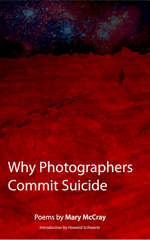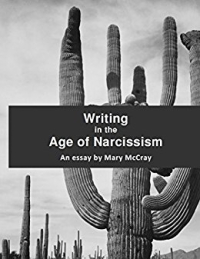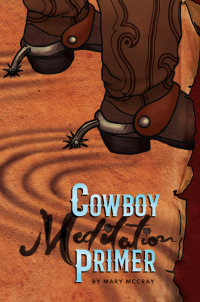 We find ourselves at the last essay project essay. The rest of the stack is pretty much just dregs, articles I don’t really want to read again let alone discuss.
We find ourselves at the last essay project essay. The rest of the stack is pretty much just dregs, articles I don’t really want to read again let alone discuss.
Somewhat unrelated, I spent about four hours last week working on a Big Bang essay about a Lunch & Learn on Artificial Intelligence I attended. I was writing about AI as it intersects with anorexia, intuition and calibrating toward reality.
But I soon decided not to post it because it felt too revealing. Something significant also happened at work that week to made posting the piece ill-advised. But I was triggered very personally by the discussion about AI in ways I didn’t expect.
I do want to make a final comment about Suzanne Gardiner’s Sarah Lawrence College essay class and my need to constantly calibrate toward reality.
 I was pretty quiet in this class, mostly because it huge, like 35-40 people if I remember correctly. Everyone wanted to take it. We all sat in concentric circles around a big table upstairs in Slonim House. I was also a first-year in the Graduate Writing Program and there were many second-years students in the class more than willing to pontificate. There were so many smart people in that class.
I was pretty quiet in this class, mostly because it huge, like 35-40 people if I remember correctly. Everyone wanted to take it. We all sat in concentric circles around a big table upstairs in Slonim House. I was also a first-year in the Graduate Writing Program and there were many second-years students in the class more than willing to pontificate. There were so many smart people in that class.
I involved myself in only two debates (as I recall), first to make a glib joke about T.S. Eliot’s “Wasteland” poem, (“a poem with more footnotes than lines has a big problem with flow!”), and second to argue with Suzanne Gardinier about the nature of reality. Gardinier was then kind of known as an activist poet and her poems were, of course, concerned in reality.
As I was even then obsessively calibrating toward reality, (which the anorexia AI piece was ultimately about), we got into an impassioned discussion about a chair being a chair. So clearly was it a solid chair we would sit on it, she said. We can all agree on the reality of a chair. And I said something about how a chair is not in fact a solid but an appearance of a solid, in fact an unsolid of moving atoms (or whatever silliness I said). The point was a chair was an idea of solid, a human compromise in believing a reality that didn’t really exist but that was useful to our need to sit somewhere. And then I think we agreed to disagree or we saw each other’s point of view or something friendly at the end. What a great class that was.
Writing is just as much about how we negotiate our reality. And this brings us to our last piece, a compilation of short chapters from Natalie Goldberg from her very spiritual writing guide, Writing Down the Bones, which seems like a very moving and warm place to finish.
(Somehow, I managed to end my essay project the same week I completed documentation of the variety shows of Sonny & Cher. Which is weird.)
But anyway…I’ve taken many one-day workshops over the years and in at least two of them, sections of Goldberg’s very popular book were distributed, probably because Goldberg combines writing with a kind of religious practice. She quotes gurus of Buddhism and talks about Zen meditation and going deep into writing,
“This book is about writing…it is also about using writing…as a way to help you penetrate your life.”
We start with her Introduction which has lots of good tidbits:
“In college I was in love with literature. I mean wild about it. I typed poems by Gerald Manley Hopkins over and over again so I could memorize them…it never occurred to me to write, though I secretly wanted to marry a poet.
After I graduated college and discovered that no one was going to hire me to read novels and swoon over poetry, three friends and I started a co-op restaurant and cooked and served natural food lunches in the basement of the Newman Center in Ann Arbor, Michigan. This was the early seventies and one year before the opening of the restaurant I had tasted my first avocado. The restaurant was called Naked Lunch, after the novel by William Burroughs—“a frozen moment when everyone sees what is on the end of every fork.”
See? Right there Goldberg masterfully talks about writing while talking about life as well.
She talks about “learning to trust my own mind” and how she happened upon Erica Jong’s poetry, Fruits and Vegetables, which illustrated for her how to write about her own subjects.
“A friend once told me ‘Trust in love and it will take you where you want to go.’ I want to add, ‘Trust in what you love, continue to do it, and it will take you where you need to go’.”
Learning, she says, “is not a linear process. There is no logical A-to-B-to-C way to become a good writer. One neat truth about writing cannot answer it all. There are many truths. To do writing practice means to deal ultimately with your whole life…to say deep down what you need to say.”
Beginner’s Mind
“Each time is a journey with no maps.” She doesn’t spend much time talking about how to attain beginners mind before each poem. Instead, she recommends some practical matters: a fast-moving pen to keep up with your thoughts, a cheap notebook so you won’t feel afraid to write crappy drafts.
“This is your equipment, like hammer and nails. Feel fortunate—for very little money you are in business!”
She even likes spiral notebooks with “Garfield, the Muppets, Mickey Mouse, Star Wars” covers. She uses them as pneumonic devices to remember which notes and and drafts are in which notebooks. She also says, “I can’t take myself too seriously when I open up a Peanuts notebook.”
She talks about how many writers work off scraps of paper. My father wrote his lists of to-dos on discarded 1960s-era computer cards. Goldberg talks about William Carlos Williams using prescription pads.
She talks about how physical writing is and how it matters what process you use, composing on typewriters or writing by hand. Computers weren’t around, apparently, but she does mention a Macintosh computer and writing into a tape recorder. She says she uses different tools for different projects.
First Thoughts
Goldberg talks about freewriting in timed exercises to explore first thoughts, and she includes the usual tips: keep your hand moving; don’t cross stuff out; ignore spelling, punctuation and grammar; lose control; don’t get logical; “go for the jugular;” if your writing gets “scary or naked, dive right into it. It probably has lots of energy.”
The point is to burn through your energy, she says, “unobstructed” by your “internal censor.” Get to the feels, the “oddities of your mind.” This is all about exploration. The ego “tries to be in control, tries to prove the world is permanent and solid, enduring and logical.”
She then goes back to Zen meditation, how sitting is a discipline. “You must be a great warrior when you contact first thoughts and write from them…you may feel great emotions and energy that will sweep you away.” She talks about how her beginning students often break down and cry. You must not be thrown off, she says. “This is the discipline…inspiration means ‘breathing in,’ breathing in God. You actually become larger than yourself.”
Writing as Practice
Writing is like running, she says. You practice whether you want to or not or you will atrophy. “One poem or story doesn’t matter one way or the other. It’s the process of writing and life that matters.” She quotes Chögyam Trungpa, Rinpoche, the Tibetan Buddhist master to say, “We must continue to open in the face of tremendous opposition. No one is encouraging us to open and still we must peel away the layers of the heart.”
Composting
Goldberg is the writer who originated this idea of mental composting, the process that happens with all those inspired notes we take and never use, all our experience just “sifting through our consciousness.” She reminds us that Hemmingway wrote about Michigan in Paris (and then about Paris from somewhere else.)
“From our decomposition of the thrown-out egg shells, spinach leaves, coffee grinds, and old steak bones of our minds come nitrogen, heat, and very fertile soil. Out of this fertile soil bloom our poems and stories.”
When you take stabs at something but it doesn’t quite work, this means the compost isn’t ready. It isn’t entirely about your free will.
She quotes Katagiri Roshi to say, “Your little will can’t do anything. It takes Great Determination. Great Determination doesn’t mean just you making an effort. It means the whole universe is behind you and with you—the birds, trees, sky, moon, and ten directions.”
Goldberg adds, “Suddenly, after much composting, you are in alignment with the stars or the moment or the dining-room chandelier above your head, and your body opens and speaks.”
Wow.
“We aren’t running everything,” she says.
No, ma’am.
Artistic Stability
 Goldberg talks a lot about her life in New Mexico, teaching and practicing, about a friend out near Taos building Earth Ships with old tires and how she allowed this friend to see her bad writing and how moving the experience was.
Goldberg talks a lot about her life in New Mexico, teaching and practicing, about a friend out near Taos building Earth Ships with old tires and how she allowed this friend to see her bad writing and how moving the experience was.
“We walk through so many myths of each other and ourselves; we are so thankful when someone sees us for who we are and accepts us.”
Original Detail
Goldberg talks about how original detail in your pieces leads to groundedness. You don’t have to be rigid with it. “The imagination is capable of detail transplants, but using the details you actually know and have seen will give your writing believability and truthfulness. It creates a good solid foundation from which you can build.”
But you have to relax, she says. “Don’t be self-conscious.”
The Power of Detail
“Our lives are at once ordinary and mythical….recording the details of our lives is a stance against bombs with their mass ability to kill, against too much speed and efficiency. A writer must say yes to life, to all of life: the water glasses, the Kemp’s half-and-half, the ketchup on the counter…Our task is to say a holy yes to the real things of our life as they exist—the real truth of who we are…we must become writers who accept things as they are, come to love the details, and step forward with a yes on our lips so there can be no more noes in the world, noes that invalidate life and stop these details from continuing.”
I mean!
(But then how do we decide which real things really exist? Ok, there I go.)
This is a fine place to leave it.
 We’re making our way through Elisa New’s queries on what poetry is, questions she posed in the Harvard’s Emily Dickinson MOOC. Here’s the next question in the list: is poetry language other human beings necessarily hear or read?
We’re making our way through Elisa New’s queries on what poetry is, questions she posed in the Harvard’s Emily Dickinson MOOC. Here’s the next question in the list: is poetry language other human beings necessarily hear or read?































